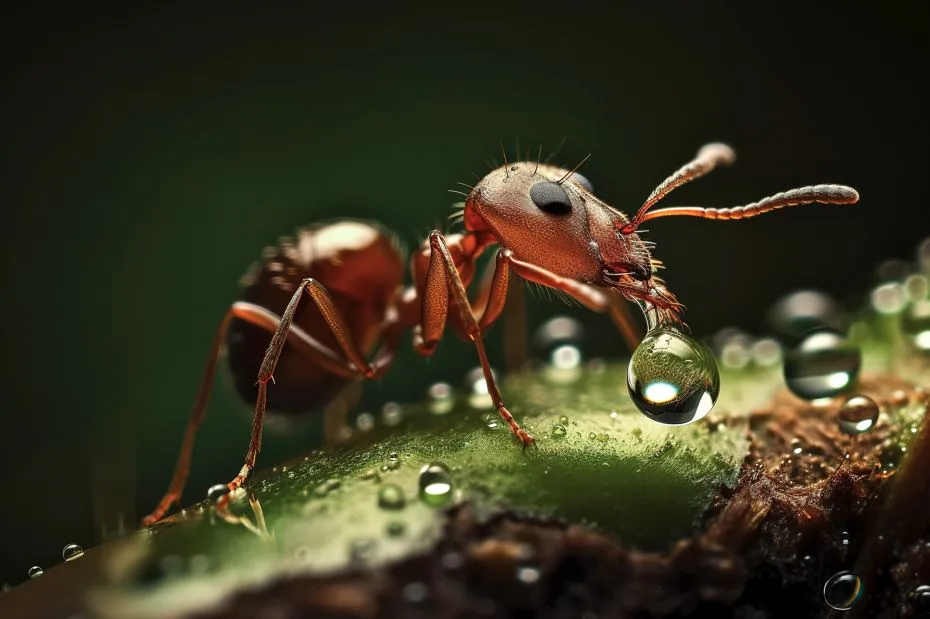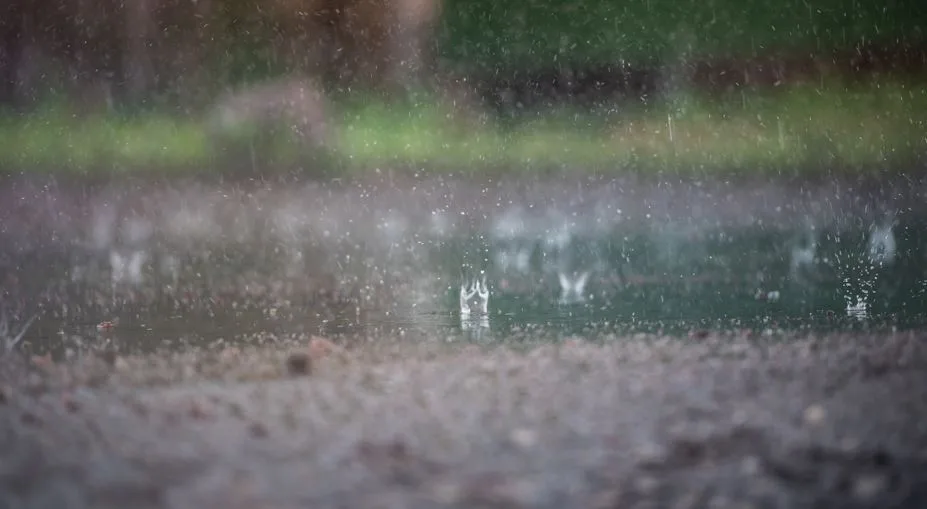
When it comes to pest control, knowledge is power. Understanding the relationship between seasonal changes, weather patterns, and pest activity is key to effectively managing pest infestations in Ocean County, New Jersey. In this article, we’ll delve into how the local climate influences the behavior of common pests and what you can do to stay one step ahead.
In Ocean County, NJ, weather and pest activity are intrinsically linked. By understanding these connections and taking proactive steps to protect your home, you can enjoy a pest-free living environment year-round.
If you need assistance with pest control, a pest inspection for your home or business, or have concerns about a potential infestation, contact Patriot Property Restoration, LLC. We’re here to help you keep your home pest-free, regardless of the weather.
The Four Seasons of Pest Activity
Ocean County experiences distinct seasons, each with its own climate characteristics. These changes play a significant role in the prevalence and behavior of pests.
- Spring Awakening: As temperatures rise in spring, many pests become more active. Ants, termites, and stinging insects like wasps and bees start foraging for food and building nests. The wetter weather can also lead to an increase in mosquito populations as standing water becomes more common.
- Summer Buzz: Summer is prime time for most pests. Warm and humid conditions provide an ideal environment for rapid breeding and population growth. Mosquitoes, ticks, fleas, and flies are at their peak during these months. Cockroaches and ants continue to thrive, invading homes in search of food and water.
- Autumn Retreat: As temperatures cool in the fall, some pests start seeking shelter. Rodents, including mice and rats, often move indoors to escape the chilly nights. Stink bugs and ladybugs may also try to find their way into your home to hibernate for the winter.
- Winter Hibernation: Winter in Ocean County is relatively mild compared to northern regions, but it still affects pest activity. While some pests remain dormant, others, like rodents, continue to seek warmth and shelter indoors. Termites, although less active, can still pose a threat to your home.
Weather Patterns and Pest Behavior
Precipitation and humidity levels also influence pest activity. Here’s how:
- Rainy Days: Rain can drive pests indoors, especially if their outdoor habitats become waterlogged. Ants and cockroaches are notorious for seeking refuge in homes during wet spells. Additionally, heavy rain can create standing water, which is a breeding ground for mosquitoes.
- Drought Conditions: On the flip side, extended periods of drought can force pests out of their natural habitats in search of water. This can lead to increased encounters with pests like spiders, scorpions, and rodents.
- Temperature Swings: Sudden temperature fluctuations can confuse pests. Warm spells in the winter might prompt early termite activity, while unexpected cold snaps in spring can disrupt the breeding cycles of certain insects.
Rainy Days and Pest Behavior During Ocean County’s Recent Heavy Rainfall
Ocean County has been no stranger to heavy rain over the past two weeks. As we all know, weather conditions play a significant role in pest behavior, and these consistent downpours have certainly had an impact on the local pest landscape. Here’s how the recent heavy rain has influenced pest activity in the region, focusing on common pests like ants, cockroaches, and mosquitoes.
The Magnetism of Rain for Pests
Rain is like a siren call for many pests, beckoning them to seek shelter and sustenance in our homes. Here’s how heavy rainfall can disrupt the lives of these unwelcome guests:

- Ants on the Move: Ants are highly sensitive to changes in weather, particularly moisture levels. When the rains come pouring down, their underground nests can quickly become waterlogged, prompting them to venture indoors in search of dry and safe havens. You might notice ant trails marching across your kitchen countertops or bathroom floors as they seek refuge from the wet outdoors.
- Cockroaches’ Delight: Cockroaches are notorious survivors, and they, too, find the rain an opportune time to infiltrate homes. Like ants, they’ll make their way indoors to avoid getting drenched. These hardy pests can slip through tiny cracks and crevices, making them a formidable adversary during wet spells.
- Mosquito Breeding Grounds: Perhaps one of the most concerning outcomes of heavy rain is the creation of standing water. Puddles, clogged gutters, and waterlogged gardens become prime breeding grounds for mosquitoes. These pesky insects lay their eggs in stagnant water, and in just a matter of days, you can find yourself facing a mosquito population explosion.
Protecting Your Home During and After Heavy Rain
Given the recent heavy rainfall in Ocean County, it’s essential to take proactive steps to safeguard your home from opportunistic pests. Here’s what you can do:
- Eliminate Entry Points: Inspect your home for cracks, gaps, and openings that pests could exploit to gain access. Seal these entry points to deny pests entry.
- Moisture Management: Address any moisture issues promptly. Fix leaks, ensure proper drainage, and use dehumidifiers to reduce humidity levels inside your home.
- Regular Inspections: Schedule regular pest inspections, especially after heavy rain, to identify and address any pest-related concerns promptly.
- Clean Up: Keep your home clean and tidy. Sweep up crumbs, promptly clean spills, and store food in airtight containers to discourage pests like ants and cockroaches.
- Outdoor Maintenance: Maintain your landscaping by trimming bushes and trees away from your home. Ensure that your gutters are clean and functioning correctly to prevent water buildup.
- Mosquito Prevention: Eliminate standing water in your yard to prevent mosquitoes from breeding. Empty containers, fix drainage issues, and consider using mosquito-repelling plants or treatments.

Ocean County’s recent heavy rainfall has undoubtedly affected pest behavior. Ants, cockroaches, and mosquitoes, in particular, may be seeking shelter and sustenance in our homes. By implementing proactive pest prevention measures and seeking professional assistance when needed, you can protect your home and maintain a pest-free environment, even in the face of relentless rain.
If you have concerns about pests in your home, reach out to Patriot Property Restoration, LLC. We’re here to help you weather the storm, both literally and figuratively, when it comes to pest control.
The Influence of Temperature on Insect Activity: Why Pest Inspections Are Vital Year-Round
In the intricate dance of nature, temperature holds a key role in orchestrating the movements of insects. These tiny creatures, being cold-blooded, are profoundly affected by the temperature of their surroundings. As we discuss the fascinating interplay between temperature and insect activity, you’ll discover why scheduling a pest inspection year-round is a wise choice.
The Chill Factor: Temperature and Insect Metabolism
In the world of insects, temperature is a maestro, directing the tempo of their metabolism and activity. The renowned entomologist Kenneth Mellanby, in a study dating back to 1939, illuminated the profound influence of temperature on insects. His research revealed that insects experience a marked reduction in activity as temperatures drop, almost like a symphony slowing to a crawl.
Mellanby introduced two key terms that are pertinent to our discussion:
- Chill-Coma Temperature: This is the point at which an insect succumbs to the cold, becoming immobilized in a state akin to a deep slumber.
- Cold-Death Point: This is the temperature threshold below which exposure becomes lethal for insects.
Survival vs. Activity: The Narrow Zone
While insects may be incredibly resilient and capable of enduring colder temperatures than those at which their activity ceases, there exists a vital distinction between survival and activity. In other words, just because insects aren’t buzzing around in colder weather doesn’t mean they’re gone for good.
Insects, much like us, have their comfort zones, which are within a narrower temperature range. This is the range where they engage in normal activities such as foraging, breeding, and seeking shelter. Beyond this zone, they enter a state of reduced activity, often triggered by lower temperatures.
The Hidden Challenge: Insects in Winter
As temperatures drop, many insects naturally slow down or enter a state of dormancy to conserve energy and survive harsh conditions. This is where the challenge lies for homeowners and businesses in Ocean County, NJ.
During the winter months, it’s tempting to think that pest problems have disappeared with the warmer weather. However, the reality is that insects may still be lurking in your home, waiting for the right conditions to become active once more.
Why Year-Round Pest Inspections Matter
Now, more than ever, you may be wondering why scheduling a pest inspection in the colder months is essential. Here’s why:
- Early Detection: An inspection in the fall or winter can uncover any existing pest issues. Detecting them early allows for prompt and targeted pest control measures.
- Prevention: Pest professionals can identify vulnerabilities in your home that could be exploited when insects become active again. They can recommend preventative actions to keep your home secure.
- Peace of Mind: Knowing that your home is pest-free in the winter provides peace of mind. You won’t have to worry about unwelcome surprises when warmer temperatures return.
In Ocean County, NJ, where seasonal temperature variations are common, pests may be lying low during the colder months, but they are not necessarily gone. They may be silently waiting for their cue to reemerge. By scheduling a pest inspection year-round, you ensure that your home remains a sanctuary from pests, no matter the weather.
Don’t let pests orchestrate their return unnoticed. Contact Patriot Property Restoration, LLC, for a comprehensive pest inspection and take control of your home’s pest-free status year-round. Remember, just because they’re not active doesn’t mean they’re gone. Be proactive, and keep your home pest-free in all seasons.
